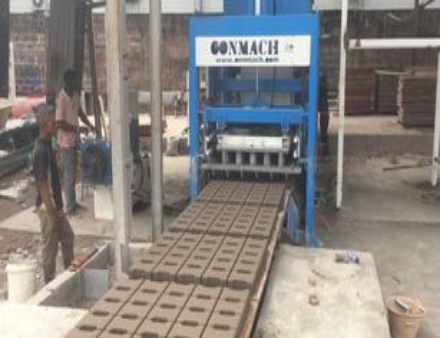The block industry business in Nigeria has remained one of the most lucrative ventures, thanks to the country’s growing population and urbanization. With an ever-increasing demand for housing, schools, and commercial spaces, the need for quality blocks continues to rise. This article provides a step-by-step guide to help you successfully start a block industry business in Nigeria.
Why Start a Block Industry Business in Nigeria?
The construction industry in Nigeria is experiencing exponential growth due to various factors, including:
- Urbanization: With more people moving to urban areas, there’s a surge in demand for housing and commercial buildings.
- Government Projects: The government invests heavily in infrastructure, creating demand for building materials.
- High Profit Margins: With proper management, block making can yield substantial profits.
- Durable Product Demand: Concrete blocks are a staple in construction due to their durability and affordability.
Types of Blocks in Demand
Before venturing into the block-making business, it’s crucial to know the types of blocks commonly used in Nigeria:
- Sandcrete Blocks: Made from a mix of cement, sand, and water.
- Hollow Blocks: Used for walls due to their lightweight and insulating properties.
- Solid Blocks: Ideal for foundations and load-bearing walls.
- Interlocking Blocks: Popular for paving driveways and walkways.
Steps to Start a Block Industry Business in Nigeria
1. Market Research and Feasibility Study
Begin by conducting thorough market research:
- Identify your target market, including construction companies, private builders, and government projects.
- Understand your competitors and analyze their pricing, quality, and market reach.
- Determine the demand for specific types of blocks in your region.
2. Write a Business Plan
A well-drafted business plan is crucial for setting clear goals and attracting investors. Your plan should include:
- Executive summary
- Market analysis
- Financial projections
- Marketing strategies
- Operational plan
3. Secure Capital
The amount of capital required depends on the scale of your operations. Basic expenses include:
- Land acquisition or rental
- Block-making machines
- Raw materials (cement, sand, and water)
- Labor costs
- Transportation
- Marketing expenses
You can fund your business through personal savings, loans, grants, or partnerships.
4. Choose a Suitable Location
The success of your block industry depends heavily on its location. Consider the following factors:
- Proximity to raw materials like sand and cement.
- Accessibility for customers and suppliers.
- Availability of water and electricity.
- Adequate space for production, storage, and parking.
5. Register Your Business
Register your block industry with the Corporate Affairs Commission (CAC) in Nigeria. Obtain necessary permits and licenses, including environmental clearances if required.
6. Purchase Equipment
Invest in quality block-making machines, which vary in capacity and price. Common options include:
- Manual Machines: Affordable but labor-intensive.
- Semi-Automatic Machines: Require some manual input but increase production speed.
- Fully Automatic Machines: High cost but maximum efficiency.
Additional tools include shovels, wheelbarrows, and molds.
7. Source Raw Materials
The primary materials for block production are:
- Cement: Ensure consistent quality by sourcing from reputable suppliers.
- Sand: Clean, sharp sand is ideal for block making.
- Water: Must be clean to avoid weakening the blocks.
8. Hire Skilled Labor
Your workforce will include:
- Machine operators
- Mixers
- Packers
- Supervisors
Provide adequate training to ensure efficient operations.
9. Set Up Production
Follow these steps to produce quality blocks:
- Measure raw materials accurately.
- Mix cement, sand, and water in the right proportions.
- Mold the blocks using the machine.
- Allow blocks to cure by keeping them moist for 7–28 days to achieve maximum strength.
10. Implement Marketing Strategies
To attract customers, you need an effective marketing plan:
- Create a strong online presence through social media and a website.
- Network with construction companies and contractors.
- Offer competitive pricing and bulk discounts.
- Provide free delivery within a specific radius.
Challenges in the Block Industry Business
Like any business, the block industry comes with its challenges:
- High Competition: Differentiate your business with quality and customer service.
- Unstable Cement Prices: Mitigate this by purchasing in bulk when prices are low.
- Power Supply Issues: Invest in generators to maintain production.
Tips for Success
- Focus on Quality: Poor-quality blocks will damage your reputation. Always prioritize durability and consistency.
- Build Relationships: Establish strong connections with suppliers and customers.
- Stay Updated: Monitor trends in the construction industry to stay competitive.
- Reinvest Profits: Scale your operations by investing in better equipment and expanding your reach.
Conclusion
Starting a block industry business in Nigeria is a profitable venture with the right planning and execution. By following the steps outlined in this guide, you can establish a thriving business and contribute to the country’s growing construction industry. Whether you’re targeting small-scale builders or large construction firms, the demand for quality blocks ensures a steady market for your products.



